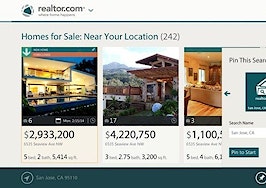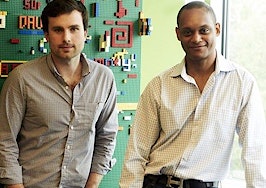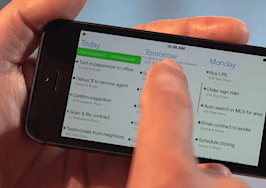Raj Singh is the co-founder of Tempo, the smart calendar. Using state-of-the-art algorithms, Tempo is able to find and surface relevant details about the people and places in your calendar to help make you more productive and successful.
Packed with innovative features, Tempo is one of the new generations of truly smart apps that merge the power of the device with the opportunities of a location-aware, always-connected network.
Singh will be onstage at Real Estate Connect to discuss what our phones are really capable of, and share how we’ve really just begun to scratch the surface when it comes to what these devices can really do. With the smartphone fast becoming the dominant computing platform of this generation, Singh has unique insights into tomorrow’s connected world that you won’t want to miss.
Inman: What’s the most disruptive force changing the economy and consumer behavior and why?
RS: Hands down, mobile first! Always on, always connected, always in your pocket. Watching how some large tech incumbents are even being impacted by this has been fascinating (e.g., Google w/search query volume moving mobile, Facebook and their focus-shift to mobile, etc.). Couple this with the thought question: What would you build if there was infinite battery life, infinite bandwidth, infinite CPU and infinite sensors? All of this will enable disruptive mobile-first experiences.
Inman: Every day there are more services described as “Uber for X.” Do you think this trend will continue? If so, what’s next? If no, why not?
RS: I’ve been an advocate of LAAS (Life as a Service). The Uberfication of services has been transformative in that it is democratizing walled gardens (e.g., taxi industry, hotel industry, etc.), but it’s also enabling a new workforce. I’m absolutely an advocate of how mobile-first can enable new experiences whether it’s access to immediate information, context as an assistant experience, access to quick services and more.
Inman: What’s the one trend you’re keeping an eye on for 2015 and why?
RS: At present, “assistants” are considered a category. When we built Tempo, the goal was to bring an assistant to your day which we thought could be best surfaced via a calendar experience. In ’07, “location” used to be a category but today it’s a layer — what app doesn’t benefit from access to location? In the same vein, we believe that “assistant” is a layer as well and although at present thought of as a category, I fully expect that through 2015 and thereafter, we’ll continue to see apps/services become more personal and more anticipatory through the Internet of Things (across all your screens).
Because assistant experiences are built on data and learning, we believe that those who do not invest now will fall ever more behind akin to how Apple Maps is trying to catch up to Google Maps, which has been collecting data for nearly a decade.
Inman: What is the one thing real estate needs to do to innovate on the consumer experience?
RS: Having just bought a home and seeing the volumes of paperwork involved in the process, real estate, in my opinion, more so than many other sectors, can really benefit from technology at multiple levels. Scheduling, e-signatures and documents, calendaring, discovery, lead generation, ice breakers and more. We believe that Tempo provides a great additional resource for Realtors since it really hits their always-on-the-road sort of pain points (e.g., insights on people, drive time to destinations, quickly adding events and more).
Inman: What’s the most important takeaway of your talk at Real Estate Connect?
RS: A successful talk for me would be if I can get a portion of the crowd to recognize that there are a number of great (especially mobile-first) tools for them to use that can really streamline their life and make things less stressful. Ultimately, it’s about saving time and eliminating the smaller things so you can focus on the big things, which is winning in their job.









